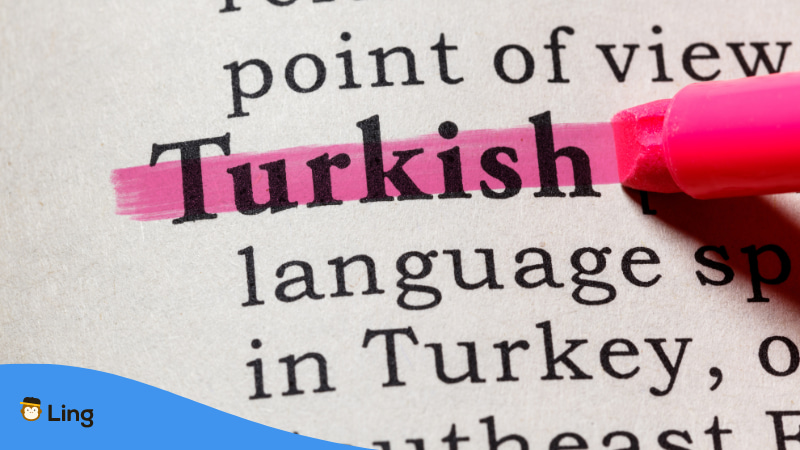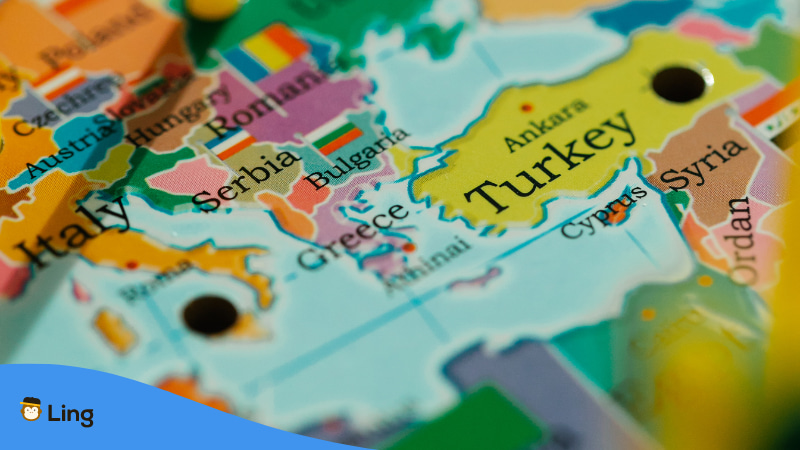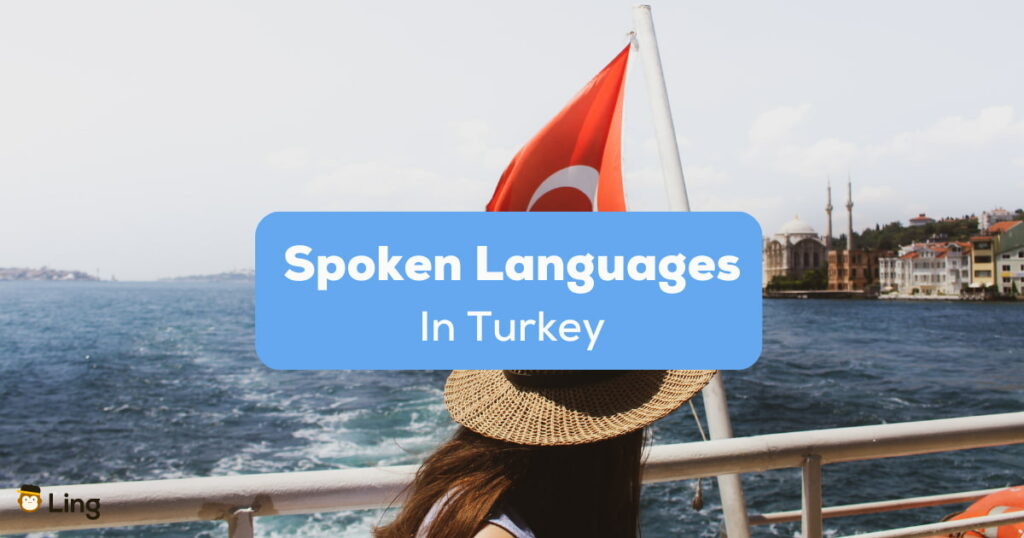The different spoken languages in Turkey are a heritage of the Ottoman Empire. However, unlike the Empire, these minority languages have survived up till today. Ready to learn the hidden languages in Turkey?
The priceless Anatolia land has hosted numerous civilizations throughout history, from Hittites to Byzantine and Byzantine to Ottomans. Today, you can still see that diverse heritage distributed all around the country, and this is what makes Turkey a popular and mystical travel destination.
As a result of this diversity, there are different ethnic groups and spoken languages in Turkey. Even though they’re not as commonly spoken as Turkish, various ethnic languages are still spoken in different parts of the country.
If you plan a trip to Turkey, it is good to know what languages are spoken there besides the Turkish language.
Page Contents:
- The Official Language Of Turkey
- The History Of Spoken Languages In Turkey
- How Many Languages Are Spoken In Turkey?
- Top 3 Spoken Languages In Turkey
- Regional Language Map Of Turkey
- Minority Language Rights In The Turkish Law
- Foreign Language Education In Turkey
- Is English Widely Spoken In Turkey?
- Which Language Should You Speak When Visiting Turkey?
- Learn Turkish With The Ling App!

The Official Language Of Turkey
For sure, the only official language of Turkey is the Turkish language, as stated in the Constitution of Turkey.
Turkish is the mother tongue of most of the population. The dialect or accent can show differences depending on the region, but the Istanbul dialect is accepted as the official and formal dialect.
Turkey started using the Latin Alphabet, which contributed to the creation of Modern Turkish, in 1928, five years after Atatürk (the founder leader of Turkey) founded the Republic of Turkey.
Before adopting the Latin Alphabet, Turkish people used the Arabic alphabet as written language; however, their spoken language was Ottoman Turkish, not Arabic.
By the way, never assume that Turkish people speak Arabic; you have no idea how much they can get offended!

The History Of Spoken Languages In Turkey
Turkey is a country with a long history. Due to its geographical position, it has always functioned as the bridge between Asia and Europe.
With the acceptance of Islam, Arabic, on the one hand, and Persian, on the other, had an apparent influence on the Turkish language.
Turkey’s ancestor is the great Ottoman Empire, and it controlled significant parts of Southeastern Europe, Western Asia, and Northern Africa for almost 600 years.
The Ottomans didn’t only involve the Turkish population; instead, there was a polyethnic population. Hence it was impossible to accept Turkish as the only official language of the empire. So, the conquered nations were allowed to preserve their native languages.
The Ottoman Empire is no more, but the ethnic groups and languages have survived through the centuries.
As a result, besides Turkish, several other ethnic languages (such as Caucasian, Kurdish, Arabic, Greek, Ladino, and Armenian) are spoken in Turkey.
How Many Languages Are Spoken In Turkey?
As I mentioned above, Turkey is home to various ethnic and immigrant languages, and the most spoken language after Turkish is Kurdish, followed by Arabic and Zazaki.
- Turkish – 84.54%
- Kurdish – 11.97%
- Arabic – 1.38%
- Zazaki – 1.01%
- Other Turkic languages – 0.28%
- Balkan languages – 0.23%
- Laz – 0.12
- Armenian – 0.07%
- Greek – 0.06%
- West European languages – 0.03%

Top 3 Spoken Languages In Turkey
The minority languages in Turkey mainly originated from ethnic minorities and immigrants, especially in the last decade. Let’s have a closer look at these languages below:
Kurdish
The Kurdish language spoken in Turkey is called Kurmanji, also known as Northern Kurdish, and it is the native language of approximately 8 million Kurdish people in Turkey.
The 3 million Kurmanji speakers are monolinguals, meaning they don’t speak the official language, Turkish. Regarding a constitutional article that no education be provided in any language other than Turkish, this situation sparks a debate every now and then in internal politics.
Arabic
Arabic is spoken by about 2.5 million people in Turkey. It is another minority language that has recently become the 3rd most widely spoken language, with many refugees coming from Arabic-speaking countries such as the closest neighbor Syria.
The Arabic language is one of the most spoken immigrant languages in Turkey, and we can hear four different Arabic dialects across the country:
- North Levantine Arabic – 1,130,000
- Modern Standard Arabic – 686,000
- North Mesopotamian Arabic – 520,000
- Other Mesopotamian Arabic – 101,000
Zazaki Language
Currently, there are more than 1.7 million Zazaki speakers in Turkey. Zazaki, also known as Kirmanjki or Zaza, is spoken by the Zaza people in the Eastern part of Turkey. Even though it was originally an Indo-European language, it has been highly influenced by Kurdish for centuries.

Regional Language Map Of Turkey
There are seven geographical regions in Turkey, each of which has uniquely different Turkish dialects. So don’t be surprised if you come across Turkish speakers with unusual accents!
The Marmara Region
It is the region where Istanbul and its surrounding cities are located. Since Istanbul is the most crowded and cosmopolitan city in Turkey, you can expect to hear many languages there, ranging from Greek to Ladino.
Most of the 17% of Turkey’s population who speak English as a foreign language are located in this region.
The Aegean Region
With Turkish being the most spoken language, English is also spoken by many of those working in the tourism industry in the Aegean Region.
The Mediterranean Region
The Mediterranean region is home to more than 220,000 immigrants. Most refugees come from Syria and speak Arabic, which makes the Arabic language widely spoken in this region.
Antalya is the most popular tourist city in the region, attracting millions of foreign tourists worldwide. As a result, you can hear Western languages, such as English and German, in this area.
The Black Sea region
People live in rural areas more than towns in the Black Sea Region, which is home to about 8.4 million people.
People speak Turkish, but also some Laz, which has around 20,000 native speakers in the region. The region is also home to some Armenian and Greek speakers.
The Central Anatolia region
The capital of Turkey, Ankara, is located in the Central Anatolia Region. A large portion of the population there speaks Turkish.
The Eastern Anatolia region
Besides the official Turkish language, the Eastern Anatolia Region is home to many Kurmanji, Zazaki, and Arabic speakers.
The Southeastern Anatolia region
In the Southeastern Anatolia Region, there are vast communities of Kurmanji and Arabic speakers, even though the majority of residents speak Turkish.
Minority Language Rights In Turkey
Article 42 of the Constitution of Turkey prohibits educational institutions from teaching any language apart from Turkish as a native language to Turkish citizens, regardless of their ethnicity.
The paragraph below is taken from Article 42 of the Constitution of Turkey:
“No language other than Turkish shall be taught as a mother tongue to Turkish citizens at any institutions of training or education. Foreign languages are to be taught in institutions of training and education. The rules to be followed by schools conducting training and education in a foreign language shall be determined by law, and the provisions of international treaties are reserved.”

Foreign Language Education In Turkey
The Western world has influenced Turkey in many areas, such as fashion, lifestyle, law, education, etc. Also, Turkey being a popular tourist attraction with a growing number of tourists that visit the country every year, necessitates the use of foreign languages, such as English, German, French, and Italian.
Foreign languages spoken in Turkey are ranked below according to their frequency of speech:
- English
- German
- French
English is taught at all Turkish schools starting from the 2nd grade at state schools and kindergarten at private schools. Though students have at least 4 hours (in most cases, it is increased to 6 hours with additional lesson hours) of English lessons per week, Turkey’s rate of English speakers as a foreign language is very low. And, it is seen as one of the biggest problems of education in the country.
A 3rd foreign language in addition to English is taught in high schools, primarily German at state schools, followed by French at some private schools.
Is English Widely Spoken In Turkey?
As I mentioned above, despite the long years of English education, most Turkish people are not able to speak English at a fluent level.
About 17% of Turkey can speak English as a foreign language. It is more common to see English-speaking people in tourist areas such as Istanbul and Antalya.
As stated by the English Proficiency Index, Turkey ranked 69 among the top 100 English-speaking countries in the world in 2020.
Which Language Should You Speak When Visiting Turkey?
First of all, it’d be very kind of you to learn some essential Turkish words and phrases. You can crack a smile on people’s faces as you greet them in Turkish or just attempt to speak the Turkish language.
In touristic areas, you can easily live on only speaking English because most shop owners and employees have picked up the English language from other tourists who stopped by over the years.
Also, most university students in Istanbul can speak English, so if you need help from a local, try to approach young people.
Learn Turkish With The Ling App!
If you want to learn Turkish or other foreign languages, waste no more time and check out the Ling app to start learning something new today!
Ling is a language learning app designed to help all language learners passionate about learning a new language. The Ling app consists of various interactive exercises, such as writing and listening exercises, mini quizzes, and an AI chatbot to practice your speaking skills. The Ling app offers you everything to enhance the four primary language skills.
Also, remember to come and go to Ling’s Turkish blog for weekly new articles about the Turkish language and culture!
So, what are you waiting for? Try Ling by downloading it from the App Store or Play Store!
Untill next time! Görüşmek üzere!



































































